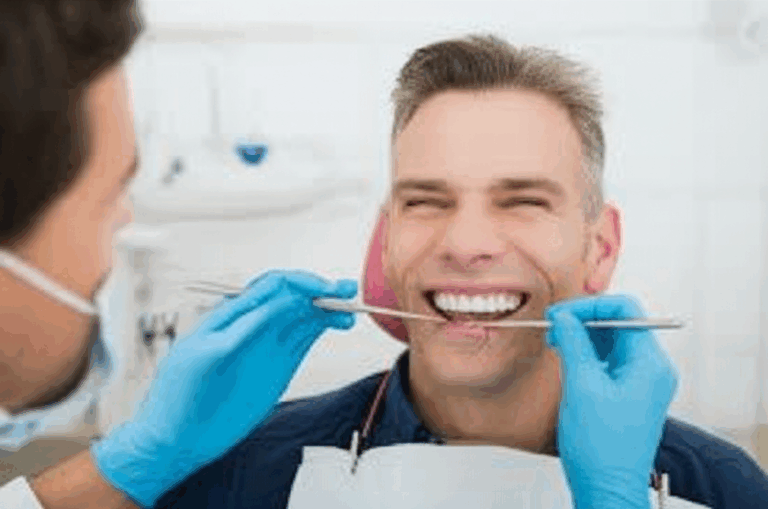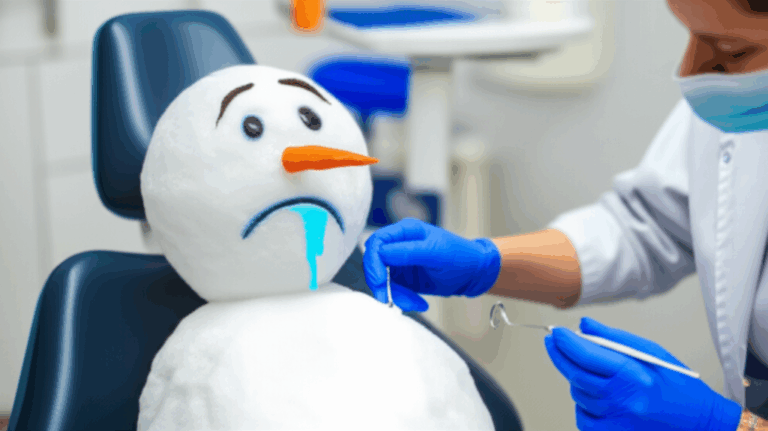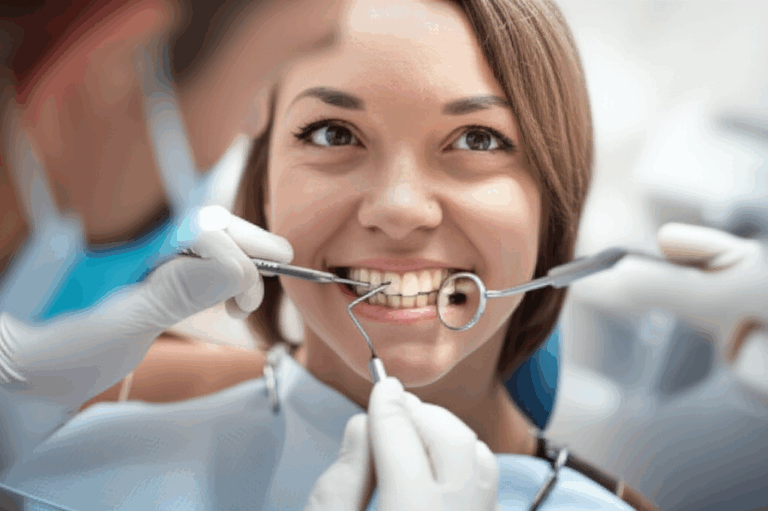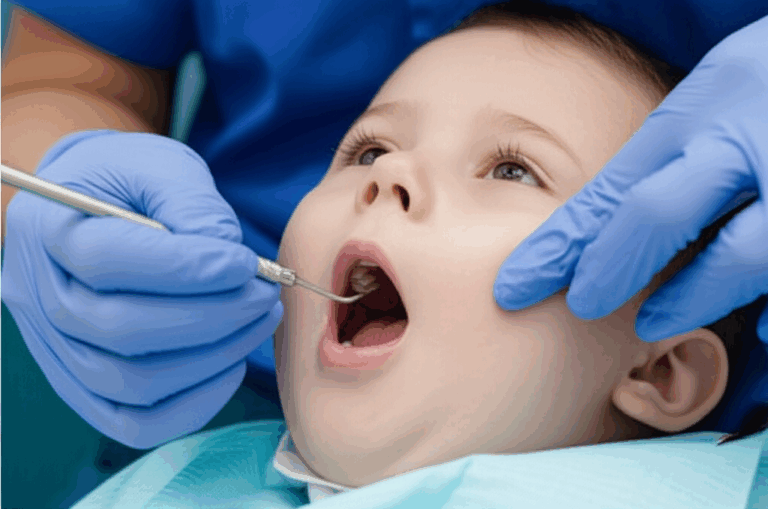
Can a Dentist Adjust a Crown? Your Guide to Relieving Discomfort and Achieving a Perfect Bite
Are you feeling uncomfortable after getting a new dental crown? You’re not alone! Many people wonder, “Can a dentist adjust a crown?” Yes, dentists adjust crowns all the time, and you don’t have to put up with pain, a sore jaw, or trouble chewing. In this easy and detailed guide, you’ll find out why your crown might feel “off,” what adjustment looks like, and how you can get back to a comfortable, healthy smile. If you want to eat, speak, and smile without worry, keep reading—this article is for you!
Table of Contents
What Is a Dental Crown?
A dental crown is like a special cap put over a damaged tooth. It protects the tooth, helps you chew, and can make your smile look better. Dentists use crowns when a tooth is cracked, has a big filling, or after a root canal.
Crowns can be made from stuff like porcelain, zirconia, gold, or composite resin. Modern labs—including dental ceramics labs—use high-tech tools to create crowns that look like your other teeth.
A good crown should feel just like your own tooth. If it doesn’t, something might need changing.
Why Would Your Crown Need Adjusting?
You might be happy to finally get your new crown. But what if it doesn’t feel right? Don’t worry! Crown adjustment is normal, and it’s done so you’ll feel better and your bite will be good.
Common Reasons for Adjustment
- High Bite (Bite Off): Sometimes, the new crown sits a little too high, so it hits against other teeth first. This can cause soreness, trouble chewing, or even jaw pain.
- Bad Fit or Shape: If the crown doesn’t fit quite right, you may feel pressure on nearby teeth or gums. Sometimes, food gets stuck, or it feels bumpy.
- Doesn’t Look or Feel Good: Maybe the crown is too big, too small, or feels rough to your tongue.
- Jaw Pain or Jaw Joint Issues: An uneven bite can bother the jaw joint, leading to jaw aches or headaches.
Meet the Need
All these problems have something in common—they make you not feel good. Nobody wants to live with mouth pain! The answer? Go see your dentist for a crown adjustment.
What Are the Signs That a Crown Needs Help?
Knowing when to call your dentist is half the battle. Here’s some clear signs your crown might need fixing:
- The crown feels “high,” like it touches first when you bite.
- You have pain, soreness, or are sensitive to hot or cold.
- You don’t like how it looks or feels.
- Your jaw feels tired or hurts, especially after chewing.
- Food gets stuck under or around the crown.
- There’s a click or popping noise when you open or close your mouth.
TIP: If something doesn’t feel right, trust what your mouth is telling you. A well-fitted crown should feel so normal you forget it’s there!
Can a Crown Feel Too High or Bulky?
Yes, it can. This is called a high bite or bite off. About 20–30% of new crowns need a little adjustment because they hit higher than your other teeth.
Think of putting on a shoe that’s just a bit too tight. With every step, you know something is wrong. That’s what a high crown feels like. Every time you chew, you notice the bump. If you leave it alone, it can cause soreness, a sore jaw, or even headaches.
Chunky crowns can bother your tongue, gums, or even make you talk funny. Don’t “just deal with it”—you don’t have to!
What Happens During a Crown Adjustment?
If you call your dentist about crown pain or discomfort, here’s what usually happens at your visit.
Step 1: First Look and Finding the Problem
The dentist will listen as you talk about your problem. They’ll look in your mouth and check your bite. Dentists use articulating paper—a special colored paper—to find “high spots.” When you bite down, it leaves marks on the crown showing where it’s too high.
Step 2: Gentle Shaving and Smoothing
Using a special dental drill and fine tips (tiny cutting tools), your dentist carefully grinds off just enough crown to fix the problem. Don’t worry—it’s a gentle process! Whether your crown is porcelain, zirconia, or composite, your dentist knows what to do.
Step 3: Rechecking the Bite and How You Feel
After each small adjustment, you’ll bite down again while the dentist checks it. This “adjust, check, adjust, check” keeps going until everything feels natural and your bite is comfy.
Step 4: Last Smoothing
The dentist finishes by polishing the crown so it’s smooth. This helps keep other teeth safe and stop food from sticking. A polished crown is also nicer for your gums and tongue.
Table: Steps in Crown Adjustment
| Step | What Happens |
|---|---|
| Assessment | Talk about problem, check bite, use paper marks |
| Reshaping | Gently grind down crown with dental tool |
| Recheck | Bite, check, repeat until it feels good |
| Smoothing | Make surface smooth and shiny |
Is Getting a Crown Adjusted Painful?
Most people find crown adjustment quick and not painful. Since the dentist only grinds off a tiny bit, you usually won’t feel much—your crown and tooth underneath are strong!
If your tooth is super sensitive, your dentist might use a tiny bit of numbing medicine. But for most folks, no shots are needed.
So don’t let fear stop you from going! The relief you get once your bite is better will make you wonder why you waited so long!
How Long Does a Crown Adjustment Take?
You’re busy. Good news—a normal adjustment only takes 10–30 minutes. Most people walk out feeling much better after their first visit.
If your bite was off just a little, the fix might take just a few minutes. For a more tricky case, or if you have a few crowns or fillings, the dentist might need more time.
Bonus: You can usually eat, drink, and talk normally right after your visit.
What If Adjustment Is Not Enough?
Sometimes, a crown just can’t be fixed with adjusting it. Here’s when your dentist might suggest something else:
- Crown Replacement: If your crown has a big crack, is loose, or doesn’t fit at the edge (where the crown meets your tooth), it might need to be redone.
- Root Canal: If pain or being sensitive doesn’t go away, the tooth’s nerve might be the problem. Your dentist may suggest a root canal under the crown to help.
- Other Dental Work: Problems with nearby teeth, a really uneven bite, or things like teeth grinding might need other answers, like a night guard or work on other teeth.
Many dentists work with special dental labs, such as a crown and bridge lab or a zirconia lab, to make and fit durable, natural-looking crowns and bridges.
What Should You Do If Your Crown Doesn’t Feel Right?
If your crown doesn’t feel quite right, don’t wait for it to just fix itself. Most times, the problem won’t go away—and you could end up with sore gums, a sore jaw, or even damage to your other teeth.
What to Do:
- Call your dentist right away for a check.
- Chew gently and don’t put too much pressure on the crown.
- Don’t try to mess with it yourself—you could make it worse!
- Keep brushing and flossing to help stop gum problems.
A well-trained dentist (or a prosthodontist for tough cases) will use the right tools and know-how to make the crown fit right.
How to Take Care of Your Crown After Adjustment
Once your dentist has fixed your crown, it’s up to you to keep it healthy for a long time!
Tips for Crown Care
- Brush and floss every day. Crowns get plaque just like real teeth.
- Don’t use your teeth to open stuff or bite hard things.
- See your dentist often for check-ups and cleanings.
- Tell your dentist if anything feels weird again.
Your crown is a big step for your health and your smile. Good crowns can last many years—some last over 10 years! Some labs like china dental lab work to make sure crowns are strong and fit right.
FAQ about Dental Crown Adjustments
Q: Can any dentist adjust my crown?
Yes! Regular dentists, prosthodontists, and even some hygienists can check and adjust crowns. For really tough cases, some dentists work with special labs for better fitting.
Q: Will my dental insurance pay for adjustment?
Most dental plans do, but call your provider to be sure.
Q: What kind of crowns can get adjusted?
Pretty much all—porcelain, zirconia, gold, and composite. Dentists know how to work with each type.
Q: How do I know if my crown is too high?
If biting or chewing feels weird, your teeth don’t meet right, or you have pain, your crown might be too high.
Q: Do crowns ever settle down on their own?
Almost never. Waiting can make it hurt more.
Key Points to Remember
- Dentists adjust crowns all the time; you don’t have to live with pain or discomfort.
- Signs your crown needs fixing: high bite, pain, sore jaw, feels big, food getting stuck.
- Adjustment is quick, safe, usually not painful.
- Most only take one short visit—relief is fast!
- Keep your crown clean and see your dentist often for years of good use.
- High-quality dental labs, like a dental ceramics lab, help crowns fit well and look good.
- Don’t try to fix it yourself—let a pro help.
Remember: Your mouth should never feel like a battle zone. If your dental crown isn’t right, reach out to your dentist now. There’s a quick, easy answer waiting—and you deserve a bite that feels just right, every day!








